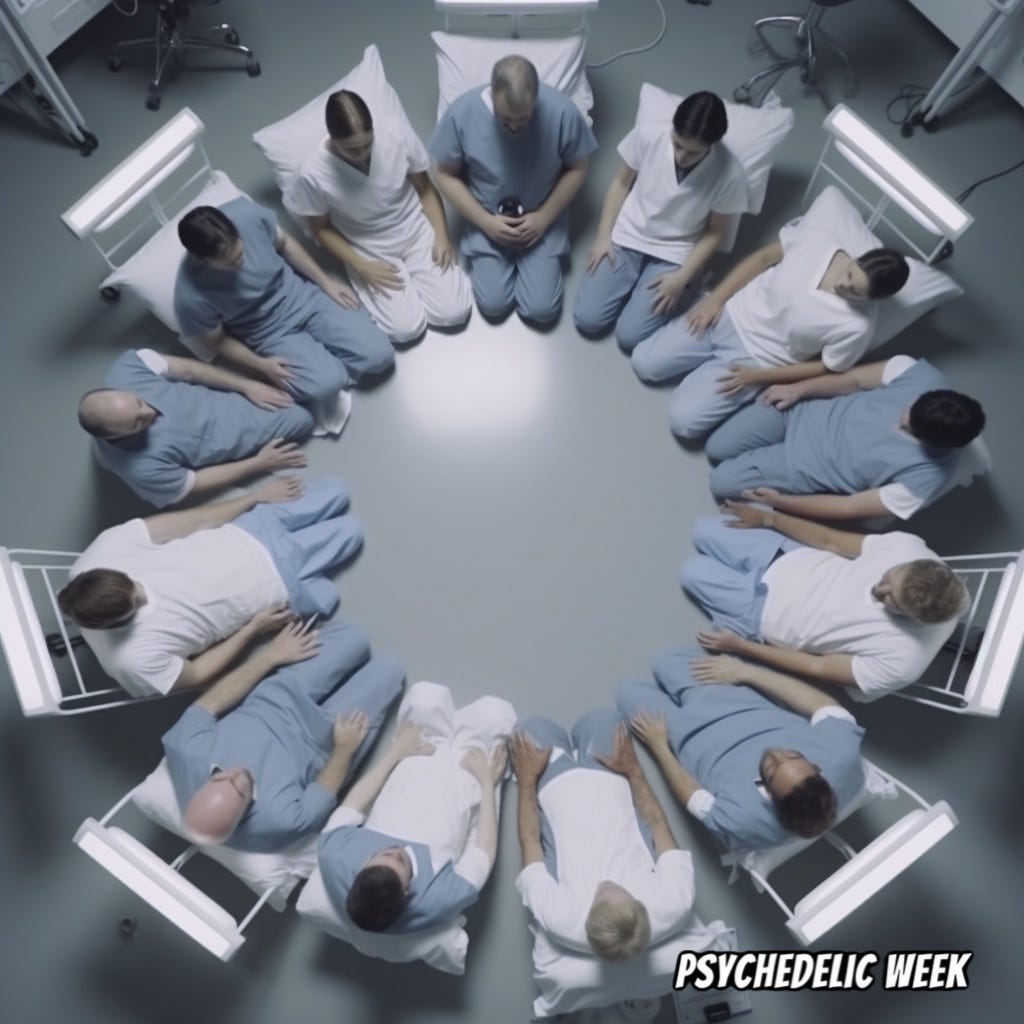Amendment to California Psychedelic Decriminalization Bill SB 58 Creates Regulated Therapy Program
Senator Scott Wiener’s bill was amended to delay decriminalization of community-based healing until a regulated therapeutic framework is adopted
*Updated July 1, 2023 to accurately reflect the history of Washington State’s SB 5263 at the article’s conclusion.
On June 29, the California Assembly’s Public Safety Committee amended Senator Scott Wiener’s psychedelic decriminalization bill Senate Bill 58 (SB 58). The amended version, published today, introduces a regulated, therapeutic program that could resemble models introduced in Connecticut or Colorado.
First introduced in 2021 as Senate Bill 519 (SB 519), Wiener’s bill has traveled a long and bumpy road. SB 519’s inclusion of synthetic substances like LSD and MDMA drew strong criticism from groups like the California Police Chiefs Association. In 2022, the Assembly Appropriations committee gutted the proposal, transforming it into a bill to study the mere possibility of future decriminalization.
In December, Wiener introduced SB 58, a streamlined version of SB 519, that jettisoned synthetics to focus on plant and fungal derived substances. Notably, the bill decriminalized not only the personal use of psychedelics, but also their facilitated or supported use, which could have taken many forms, including “spiritual guidance, community-based healing, or related services.” The California Senate approved the bill this May before it moved to the State Assembly.
In mid June, however, Wiener acknowledged that his bill faced a “challenging road” ahead. His intuition proved correct yesterday, when the Public Safety Committee made the most significant change to SB 58 so far. A new amendment delays the decriminalization of facilitated or supported use of psychedelics “until a framework governing the therapeutic use of those substances has been adopted.”
This amendment potentially transforms SB 58 from a decriminalization bill to a regulated, therapeutic model of supervised psychedelic administration. Moreover, it says the framework for therapeutic use “would include community-based healing, facilitated and supported use, risk reduction, and other related services.” Consequently, it remains unclear whether community-based healing would be allowed outside the regulated model or solely within it.
It also remains unclear what a regulated, therapeutic model would look like in California. It could resemble the medical approach taken in Connecticut, which will provide psilocybin and MDMA to veterans, first responders, and healthcare providers through the FDA’s expanded access program.
Alternatively, SB 58’s therapeutic model could resemble the regulated side of Colorado’s Natural Medicine Health Act (Proposition 122). The rules to implement Colorado’s law are still under development, and state “healing centers” won’t open until 2025. However, the Act allows the blending of psychedelic services with medical practice, and the state’s psychedelic advisory board appears to be prioritizing medical use.
However, SB 58’s therapeutic framework would likely differ from the model created by Oregon’s Psilocybin Services Act (Measure 109), which is effectively recreational and best characterized as supported adult use. Nevertheless, Oregon’s framework allows for group psilocybin services. Once finalized, Colorado’s regulated program will likely allow group psychedelic therapy, as well as some degree of facilitated non-therapeutic use.
The language of SB 58’s recent amendment suggests that California’s framework might also accommodate medical and non-therapeutic group services. Its current language anticipates “facilitated and supported use, risk reduction, and other related services” in addition to community-based healing.
Supporters of SB 58 always faced an uphill battle. So far, decriminalization bills have only been passed through voter approved ballot initiatives in Oregon and Colorado. Accordingly, Senator Wiener’s amended bill will likely face further resistance down the road. It might not pass, or it could be amended, either to narrow its scope or shift it further in a medical or clinical research direction.
Earlier this year, Washington State’s SB 5263 faced a similar fate. Instead of promoting decriminalization or therapeutic use, it aimed to create a program for supported adult use of psilocybin, like that of Oregon. The Washington legislature reduced it to a state-funded clinical trial at the University of Washington.
*The views expressed on Psychedelic Week do not represent the views of Harvard University, POPLAR at the Petrie-Flom Center at Harvard Law School, Florida State University, or the Florida State University College of Law. Psychedelic Week is an independent project unaffiliated with these programs and institutions.
Mason Marks, MD, JD is a Visiting Professor of Law at Harvard Law School and the Florida Bar Health Law Section Professor at the Florida State University College of Law. He is the senior fellow and project lead of the Project on Psychedelics Law and Regulation (POPLAR) at the Petrie-Flom Center at Harvard Law School and an affiliated fellow at the Information Society Project at Yale Law School. Marks teaches drug law, psychedelic law, constitutional law, and administrative law. Before moving to Florida, he served on the Oregon Psilocybin Advisory Board where he chaired its Licensing Subcommittee. Marks has drafted drug policies for state and local lawmakers. His forthcoming book on psychedelic law and politics will be published by Yale University Press. He tweets at @MasonMarksMD and @PsychedelicWeek.


